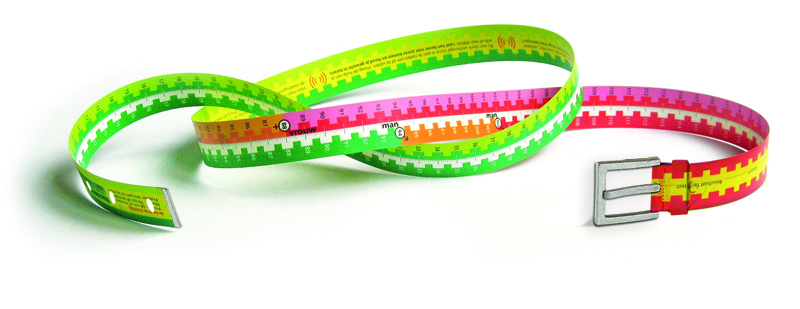|
Researchers at the University Medical Center (UMC) Utrecht have shown that apparently healthy people measuring their own waist circumference can be a reliable and feasible first step in screening for the metabolic syndrome. This finding could form the basis of a focused screening program for risk factors for diabetes and cardiovascular disease to be implemented nationally. In IJsselstein, in the Netherlands, a total of 11,862 apparently healthy men and women between the ages of 20 and 70 years were invited by their general practitioner to take part in the study. Of the 5,558 people who responded, 2,004 proved to have a large waist circumference. The participants measured their waist with a tape measure. If this was above 102 cm in men or 88 cm in women, they were invited to take part in further research to check for additional risk factors. The measurement of the waist circumference proved to be reliable. Of the 1,721 people with a large waist circumference who underwent further examinations, 473 met the criteria for metabolic syndrome. Nearly half of them were under the age of 50.
The metabolic syndrome is a cluster of risk factors for diabetes and cardiovascular disease, and involves having at least three of the following five risk factors: large waist circumference, elevated blood pressure, raised triglyceride level, raised glucose level and lowered HDL cholesterol level. People with the metabolic syndrome have an increased risk of developing diabetes and cardiovascular disease. Encouraging results Screening proves reliable and feasible Dr. Corine den Engelsen was awarded her doctorate on February 12, 2013 at UMC Utrecht (Supervisor: Prof. Guy Rutten). She is currently training to be a general practitioner.
Reference: Den Engelsen C (2012). Screening for metabolic syndrome in primary care. Thesis. Utrecht University, Utrecht, The Netherlands. |
|
The University Medical Center (UMC) Utrecht is one of the largest public healthcare institutions in the Netherlands. It employs almost 11,000 people who are working continuously on providing care, with people and knowledge as the two cornerstones. There are 3,350 students at the medical faculty. Around 2,800 babies are born at UMC Utrecht every year, and there are 29,000 day care treatments, 33,000 hospital admissions and 340,000 outpatient clinic appointments. UMC Utrecht aims to be a leading university medical center internationally, a center where knowledge about health, disease and healthcare is generated, validated, shared and applied. UMC Utrecht is part of the NFU, the Dutch Federation of University Medical Centers.
|

